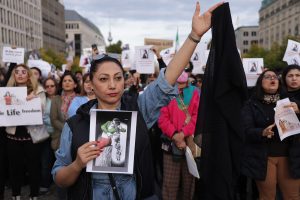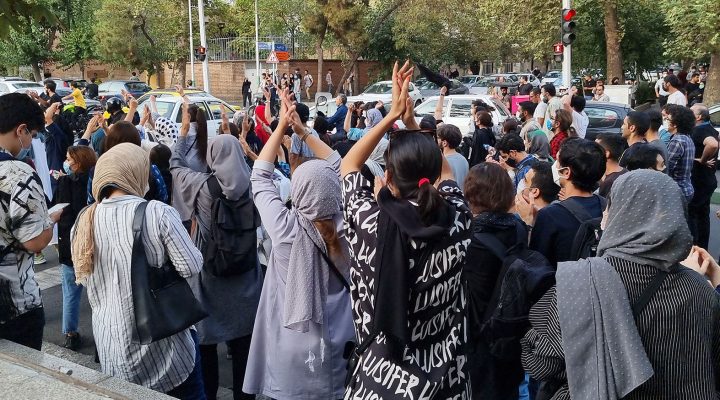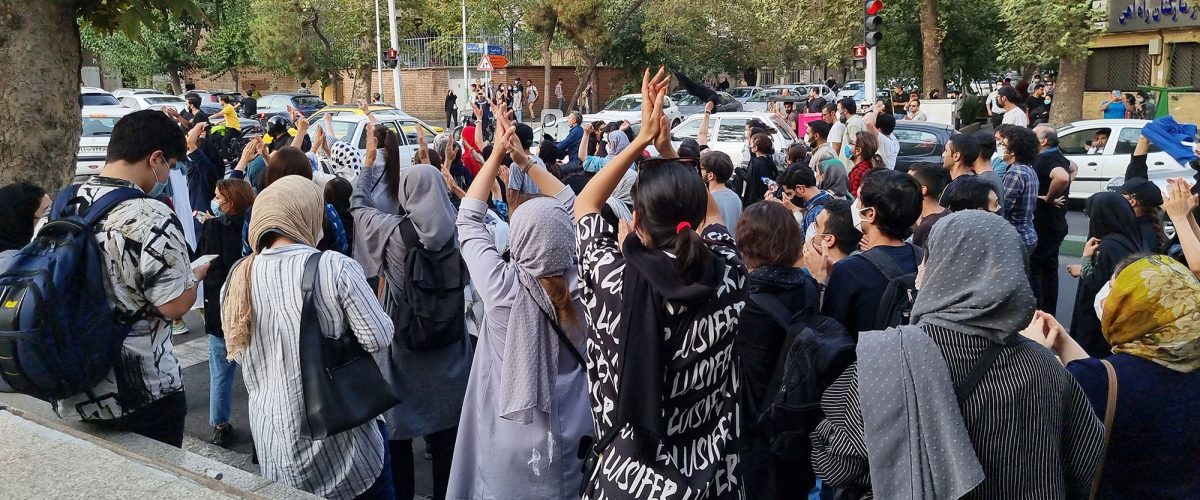After being arrested in Tehran, the capital of Iran, by the Islamic Republic’s morality police, Mahsa Amini died in police custody after allegedly suffering multiple blows to the head. Amini had been arrested for wearing her hijab improperly.
Wearing a hijab is mandatory for all women in Iran.
After being arrested, Amini was placed in a police van, where her family and eyewitnesses claim she was beaten by the police. Police reject these allegations, claiming a heart attack caused the 22-year-old’s “unfortunate” death.

Protesters, including one woman holding up a headscarf, gather to demonstrate against the death of Mahsa Amini in Iran on September 23, 2022 in Berlin, Germany.. (Photo by Sean Gallup/Getty Images)
This has incited mass protests throughout Iran, including many women who are burning their hijabs and cutting their hair short in resistance to the strict dress codes enforced by the morality police.
In Iran, the morality police enforce conservative Islamic dress codes and behavior, such as the proper way to wear a hijab. They have the power to criminalize anyone in the country who they feel does not abide by their standards.
In Islam, according to this blog which uses the Qu’ran and Sunnah for reference, women must cover their bodies with the exception of their face, hands and wrists. If they wish, they may cover their entire bodies. Clothing also should be loose and opaque to not reveal the body’s figure.
But not all Muslim women wear a hijab or adhere to these strict guidelines — some Muslim women believe that other acts of spiritual devotion are just as meaningful to their relationship with Allah. These guidelines are ideal, but just like many practices from other religions, are not always followed to a tee by believers.
However, according to the Iranian morality police, all women must wear hijabs in public regardless of religious belief. They also have banned tight pants, ripped jeans, bright outfits and the exposure of knees. This dress code first was established during the Islamic revolution in 1979 when Iran became an Islamic republic.
In response to the death of Mahsa Amina, the United States has “imposed sanctions on Iran’s morality police and leaders of other government agencies.” Additionally, the United Nations human rights office is seeking an investigation into the case.
Going on for nearly a week, protests have become violent as videos of protesting women standing atop burning police cars were shared on Twitter by Rana Rahimpour, a presenter for BBC. A hashtag that translates in English, “No to the Islamic Republic” has been used by protesters and activists to spread the word about this violence worldwide.
These women are tired of their bodies being policed for the ways they choose to express their faith. They are forced to either submit to the state’s radical religious standards or face violence.
Related article:
Iran continues ‘egregious violations of religious freedom,’ watchdog reports


